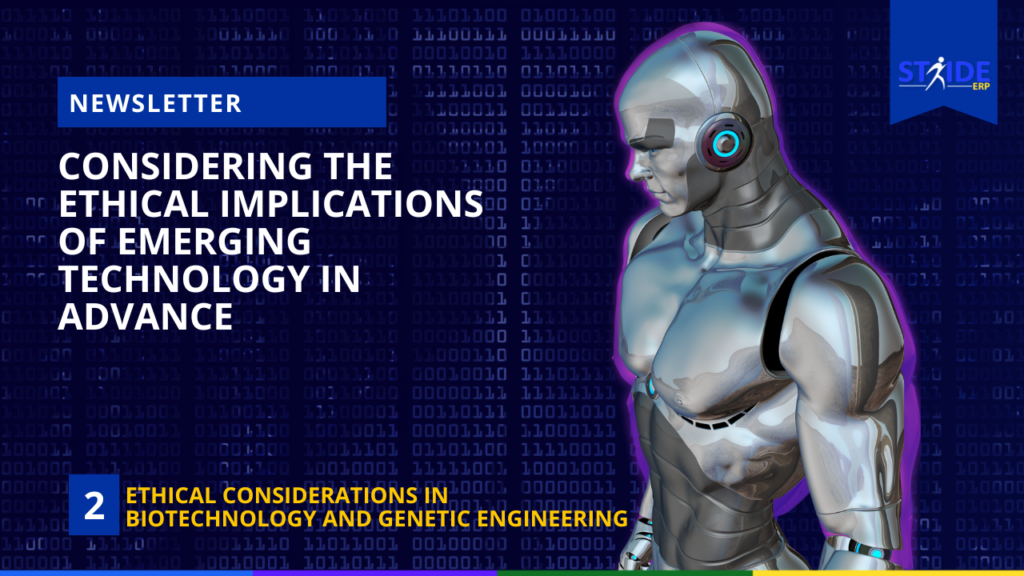
Biotechnology and Genetic Engineering have emerged as powerful fields driving advancements in medicine, agriculture, and beyond. However, these innovations come with profound ethical considerations that demand careful examination. This article explores the ethical dimensions of Biotechnology and Genetic Engineering, delving into key concerns and the importance of responsible practices.
- Informed Consent and Genetic Manipulation: The ability to manipulate genes raises critical questions about informed consent. Individuals undergoing genetic interventions or participating in biotechnological studies must have a comprehensive understanding of the potential risks and benefits. Striking a balance between scientific progress and respect for individual autonomy is paramount.
- Privacy and Genetic Information: The increasing accessibility of genetic data poses challenges to privacy. Protecting individuals’ genetic information from unauthorized access and misuse is crucial. Ethical frameworks must be established to govern the storage, sharing, and utilization of genetic data, ensuring the confidentiality of individuals’ genetic profiles.
- Genetic Discrimination and Social Equity: The potential for genetic discrimination based on predispositions or susceptibilities introduces ethical concerns. Strides in genetic understanding should not exacerbate existing social inequalities. Policymakers and researchers must work collaboratively to ensure that genetic information is used responsibly and does not contribute to discrimination in areas such as employment or insurance.
- Designer Babies and Ethical Boundaries: The prospect of selecting desirable traits in unborn children raises ethical questions about the limits of human intervention. Striking a balance between using genetic technologies for therapeutic purposes and venturing into the realm of enhancement is a delicate ethical challenge. Establishing clear ethical boundaries becomes imperative to prevent unintended consequences.
- Environmental and Ecosystem Impact: Genetic engineering can extend beyond individual organisms to impact entire ecosystems. Introducing genetically modified organisms into the environment may have unforeseen consequences, affecting biodiversity and ecological balance. Evaluating and mitigating potential environmental risks associated with genetic modifications require a comprehensive ethical approach. Top of Form
While Biotechnology and Genetic Engineering offer unprecedented potential for advancing human health, agriculture, and environmental sustainability, the ethical considerations cannot be overlooked. Striking a balance between scientific progress and ethical responsibility is crucial to ensure the ethical use of these powerful technologies. As society continues to grapple with the ethical implications of biotechnology, an ongoing dialogue between scientists, policymakers, and the public is essential to navigate these uncharted territories responsibly.
Stride ERP enables organizations to take a proactive approach in addressing the ethical implications of emerging technology. By offering tools for transparent data management, bias mitigation, and privacy protection, Stride ERP is designed to empower companies to navigate the evolving technological landscape responsibly.
If you’re interested in learning more about Stride ERP, we invite you to schedule an appointment using the following link schedule an online session or contact our dedicated support team at 01 515 5084 or via email at support@strideerp.com.
